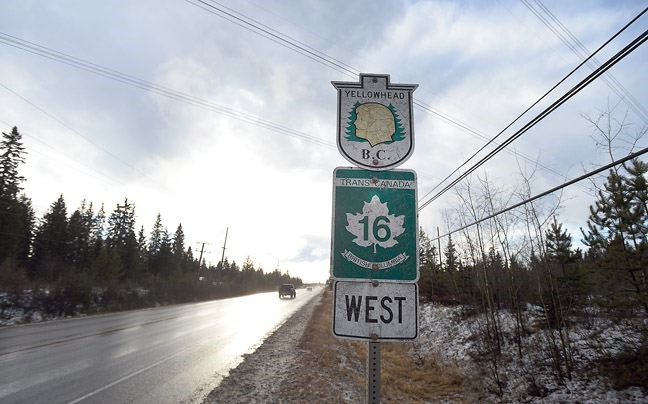College and university students living along Highway 16 West will be hopping on board when a new public transit system hits the road, British Columbia Federation of Students president Simka Marshall is predicting.
"There are students who live along the highway who often require transportation between the towns," Marshall said Monday. "I definitely think it will be utilized by students."
Transportation and Infrastructure Minister Todd Stone said last week that a bus service along the 724-kilometre stretch will begin carrying passengers by the end of this year and be fully implemented in 2017.
University of Northern British Columbia, College of New Caledonia and Northwest Community College have campuses strung across the 724-kilometre stretch.
Concerns remain, however. Both the BCFS and the Union of British Columbia Indian Chiefs have noted funding for the service has been committed for just three years.
And Chief Corrina Leween of the Cheslatta Carrier Nation told The Canadian Press that while the bus service helps many living in towns on or near the highway, it offers little comfort to those off the main road.
"The work they are doing for the core group on the corridor is good, but for us it really doesn't work because we're off the beaten trail," she said.
Leween said the main Cheslatta community of about 300 people is located about 25 kilometres south of Burns Lake and getting to the highway requires a ferry trip and travel on a dirt road.
Five Cheslatta people, including a family of four and a male elder, have disappeared from the area over the years, she said.
In response, Stone said $800,000 of the $5 million earmarked for the service is to provide grants to purchase vans to act as shuttles between communities like Cheslatta to Highway 16. A further $300,000 is being provided for a First Nations driver education program, through which Class 4 and 5 licences can be earned.
"I want to dispell any suggestions that remote communities not located along Highway 16 will not benefit from this $5 million fund," Stone said.
Also known as the Highway of Tears, 18 women have been murdered or have disappeared along Highway 16 between Prince George and Prince Rupert and adjacent routes since the 1970s.
- with files from The Canadian Press



